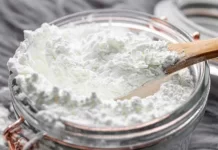Teenage depression is all too common. About one in seven 10-19-year-olds experience at least one major mental disorder globally.
Depression rates for younger children are even higher. At this age, symptoms tend to go unnoticed by both parents and teachers. You might be able to help your child before things deteriorate by knowing the underlying issues.
If you think your child might be suffering from depression, here is what causes of depression in teens and what you can do to help.
Keep reading!
1. Role Of Social Media
Social media has a significant role in contributing to teen depression. The images, messages, and content that are posted on social media can create feelings of insecurity in youngsters. Misuse of social media leads to isolation, as teenagers lose the ability to interact outside of the virtual world.
It makes them feel isolated and disconnected from the real world. Cyberbullying is a major cause of teenage depression and can leave people feeling worthless. Social media also has a direct impact on mental health by over-exposing teens to toxic and negative content, leading to a lack of sound judgment.
2. Struggles With Low Self-Esteem
Low self-esteem is one of the many causes of depression in teenagers. Many teens feel extremely insecure because of the constant bombardment of unrealistic beauty standards, negative body image issues, and societal pressures to fit in. Many times, teens struggle with low self-esteem due to their inability to meet these ideals, leading to feelings of inadequacy.
Low self-esteem can arise from feelings of family or social disruption, personal failure, and even bullying. This causes teens to feel self-conscious and unable to cope as they fully transition through adolescence.
3. Physical Changes Causes Of Depression In Teens
The physical changes accompanying puberty can be a contributing cause of teenage depression. Hormone levels increase drastically, and teenagers can start to feel out of control of their own body. This can be particularly difficult if they do not find themselves within societal norms of beauty and ideal body weight.
Teenagers may experience physical changes which cause embarrassment or discomfort, such as body odor, acne, or voice changes. The awkwardness or shame caused by these changes can contribute to depressive thoughts or feelings. Seeking help from family members or a mental health professional is essential to manage teenage depression and physical changes.
4. Academic Pressure
Teens are oftentimes put on rigorous courses that are fast-paced and require intense dedication to maintain. They may feel the need to compete with their peers regarding grades. They also strive for higher-than-average scores to gain the approval of adults in their lives.
This can lead to feelings of inadequacy and overwhelm when faced with competing expectations and the need to prove themselves. This type of situation can also cause teens to feel that their intelligence and worth are being judged rather than appreciated.
With depression, some teens tend to rely on addictive measures such as drugs and alcohol. To help cope with depression and addiction, read these 7 facts about teenage drug addiction.
Recognizing Causes of Depression in Teens
Depression is a serious issue, and if we want to help teenagers, we must understand the full range of conditions that can contribute to their declining mental health, from early-development external and internal causes to increased pressures from social media and school pressures. It’s important to be aware of what factors can be at play.
We need to start a conversation about the causes of depression in teens and how we can better support teenagers in this vulnerable time. Found this article helpful? Check out the rest of our website for more tips!

































